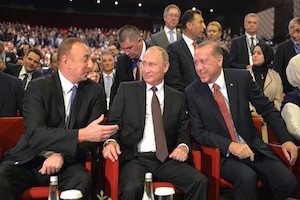Baku-Tbilisi-Kars Railway to Become Central Asia's Gateway to Europe
By Fuad Shahbazov
December 7, 2017, the CACI Analyst
On October 30, 2017, Azerbaijan’s President Ilham Aliyev, along with Turkey’s President Recep Tayyip Erdogan, Georgia’s Prime-minister Giorgi Kvirikashvili, Kazakhstan’s Prime Minister Bakytzhan Sagintayev, and Uzbekistan’s Prime Minister Abdulla Aripov attended the opening ceremony of the long-delayed Baku-Tbilisi-Kars (BTK) railway. “The opening of the railway is of historic and strategic significance,” Aliyev said at the ceremony in the Caspian port city of Alat, south of Baku, to mark the departure of the first trains. In fact, the opening of the new railway provides an alternative route to existing rail services carrying goods from Asia to Europe.
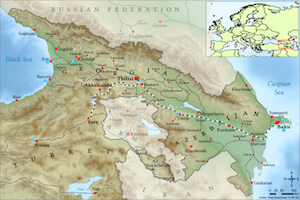
Will the Lapis Lazuli Railway Corridor Finally End Afghanistan's Isolation?
By John C. K. Daly
December 1, 2017, the CACI Analyst
On November 15 during the 7th Regional Economic Cooperation Conference on Afghanistan (RECCA-VII) in Ashgabat Turkey, Afghanistan, Turkmenistan, Azerbaijan and Georgia signed an agreement providing for a major international trade and transport corridor stretching from Turkey to Afghanistan via the post-Soviet Central Asian republics, named the “Lapis Lazuli Corridor.” While many practical problems remain, the development and operation of such a railway corridor has enormous implications for the countries along its route, particularly Afghanistan.
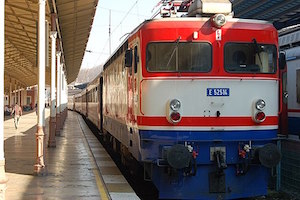
The EU and Azerbaijan: What is on the Negotiation Table?
By Surayya Mammadova
September 12, 2017, the CACI Analyst
Prior to the 2015 Riga summit, Azerbaijan began to distance itself from EU partnership initiatives. Responding to criticism on crackdowns that intensified since 2013, the country adopted an increasingly anti-Western rhetoric in its foreign policy. Since then, the geopolitical and economic situation in Eastern Europe and the South Caucasus has become more complicated and unpredictable, forcing both the EU and Azerbaijan to reevaluate their strategic priorities. Negotiations on a new partnership agreement began in February 2017, during Ilham Aliyev’s long awaited visit to Brussels, and the parties plan to finalize a draft agreement by November. Although Azerbaijani and EU interests align in some areas, issues such as political and security cooperation could become stumbling blocks once again.
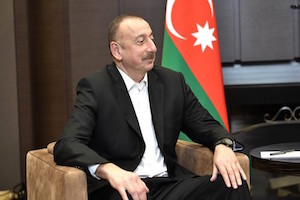
Presidential Visit Gives a New Boost to Azerbaijani-Turkmen Relations
By Fariz Ismailzade
September 6, 2017, the CACI Analyst
The recent visit of Turkmenistan’s President to Azerbaijan opens a new chapter in bilateral relations and creates a solid foundation for the expansive development of energy and transport projects in the Caspian region. The two countries play a key role in the East-West transport corridor in the greater Eurasia. Both countries hold significant carbohydrate resources. Political dialogue and strong partnership between these Turkic countries can transform the economic and geopolitical map of the region.
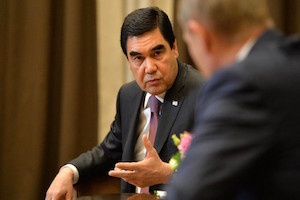
Azerbaijan Supports Extension of OPEC Oil Output Freeze Agreement
By Natalia Konarzewska
July 31, 2017, the CACI Analyst
In late May, the member states of the Organization of the Petroleum Exporting Countries (OPEC) and several crude producers outside the cartel decided to extend the cuts in oil production by another nine months. This is a follow-up of agreement on the oil production freeze, introduced in November last year by major OPEC crude producers and several countries outside the organization to stabilize the plummeting oil prices and rebalance supply and demand in the crude market. Azerbaijan, which is not an OPEC member, decided to join the freeze deal and its May extension to break this downward spiral and mitigate the negative effects of the oil price on its budget revenues.
